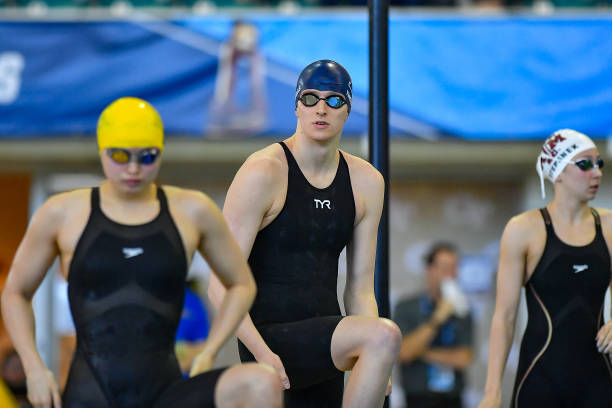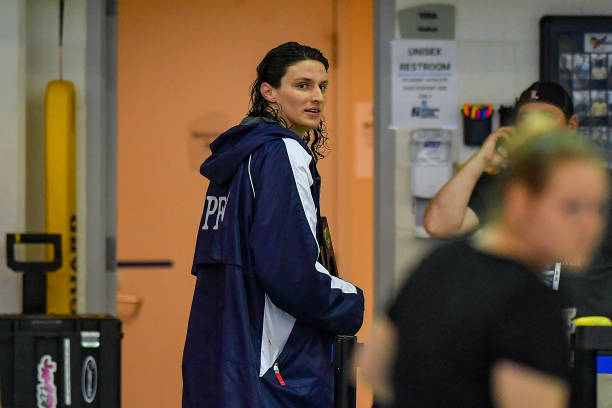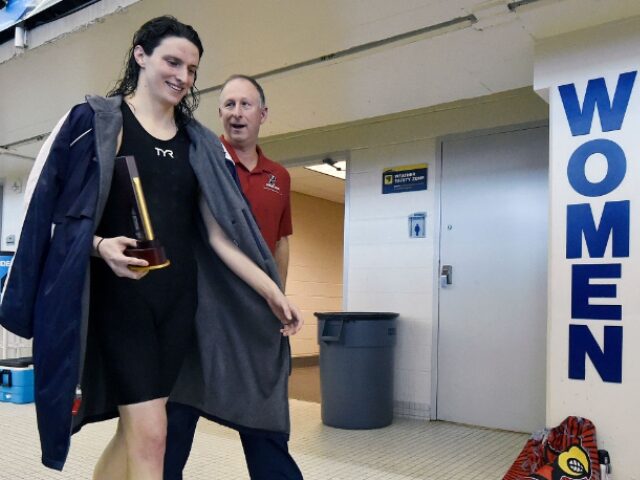One of Lia Thomas’ former teammates says apologies are owed after she was “forced to undress” in front of Thomas “18 times a week” while competing as a collegiate swimmer at the University of Pennsylvania.
Paula Scanlan, former UPenn swimmer and advocate for the protection of women’s sports, took to X and captioned a New York Post article reporting on Thomas’ failed attempt to sue World Aquatics for blocking him from competing in the Paris Olympics.
Scanlan’s caption made it clear that denying Thomas the Olympics was insufficient.
Scanlan wrote, “okay, but is anyone going to apologize for forcing us to undress with him 18 times a week?”
Thomas, a man, attempted to sue World Aquatics after the international swimming governing body banned male swimmers who had undergone puberty from competing in elite women’s swimming events.

University of Pennsylvania swimmer Lia Thomas on the starting block during the 100 Freestyle prelims at the NCAA Swimming and Diving Championships on March 19th, 2022, at the McAuley Aquatic Center in Atlanta, Georgia. (Rich von Biberstein/Icon Sportswire via Getty Images)
The decision, handed down by the Court of Arbitration for Sport (CAS), blocks Thomas from swimming for Team USA or any elite competition regulated by World Aquatics.
The swimmers who competed with and against Thomas and were made to share the same locker room as him in the NCAA want to see some redress for the indignities they were forced to accept as collegiate swimmers. The NCAA, however, is not under the purview of World Aquatics, and their rulings do not impact the collegiate sports governing body.
Thomas’ defeat at the CAS is not insignificant, though. The broader international pushback against trans inclusion could indeed factor into the lawsuit former female collegiate swimmers and others have filed against the NCAA for forcing them to compete against and share locker rooms with a man.

University of Pennsylvania swimmer Lia Thomas looks back after finishing fifth in the 200 Freestyle final during the NCAA Swimming and Diving Championships on March 18th, 2022, at the McAuley Aquatic Center in Atlanta, Georgia. (Rich von Biberstein/Icon Sportswire via Getty Images)
The trauma of having to undress in front of a man was especially damaging for Scanlan, who was a victim of sexual assault in a bathroom when she was 16 years old, according to the New York Post.
Thomas competed for the University of Pennsylvania for three years. He accused World Aquatics of being “discriminatory” with their transgender ban. Much of his case that he did not have a competitive advantage against women rested on his use of hormone replacement therapy beginning in 2019.
However, World Aquatics based their trans inclusion rules on whether the athlete had gone through male puberty, not on whether he had undergone hormone therapy.

COMMENTS
Please let us know if you're having issues with commenting.